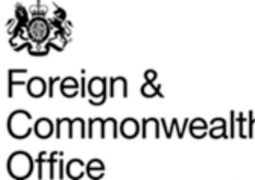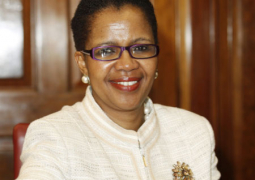Islam the Misunderstood Religion Is Religion Antiquated?
Let none dare say that the revival of Islam is an impossible and hopeless undertaking, as the human race has in the past proved beyond any doubt that it is quite capable of rising above a purely animal level. And surely what once was possible in the pass needs must still be possible in the present, for mankind has temperamentally not undergone any change ever since. The world of humanity had sunk then, as now, to quite as low level and was as much taken up with sensual pleasures as it at present seems to be. There is no difference between its present and past save the outwardly visible forms of voluptuousness or the names of the luxuries indulged in. Ancient Rome was no less rotten morally than its modern counterparts. Similarly, in ancient Persia sexual anarchy was as rank as is at present associated with the communist countries. It was in this historical perspective that Islam was revealed to the world. It brought about a complete change lifted mankind from the abyss of moral degradation, gave human life a lofty purpose, dynamism, movement, and infused into it a spirit to strive hard in the way of truth and goodness. Humanity under Islam flourished, prospered and there was set afoot a dynamic intellectual and spiritual movement that encompassed the East as well as the West. No forces of evil and mischief dared check the onward march of Islam with the result that the whole outlook of human life was radically transformed. Thus the world of Islam became the headspring of light, excellence and progress in the world for a long time to come. During this long period of its dominance never did the Islamic world find itself lagging behind materially, intellectually or spiritually for the simple reason that it did not encourage moral corruption, sexual anarchy or Godlessness. Its followers were looked upon as symbols of goodness and excellence in all spheres of human activity till they ceased to reflect in their lives the noble and exalted ideal of Islam and became mere slaves to their whims and animal desires. It was then that all their glory and power came to an end in accordance with the immutable law in God.
The modern Islamic movement that is still gathering force derives its strength from the past and makes use of all the modern available resources with its gaze fixed on the future. It has great potentialities and as such has a bright future ahead, for it is fully capable of performing that great miracle which has once been already affected by Islam making man look higher and beyond animal pleasures with his feet planted firmly on the earth and with his gaze fixed beyond the heavens.
This does not, however, mean that Islam is a mere spiritual creed, or a plea for morality, or just an intellectual research in the kingdom of heavens and earth. It is practical code of life that fully embraces worldly affairs. Nothing escapes its penetrating eye. It takes notice of all the diverse patterns of relationships binding men together irrespective of the fact that such relationship fall under the political, economical, or social heads; regulates them by prescribing suitable laws and then enforces them in human life, the most outstanding characteristic of the performance being the achievement of a unique harmony between the individual and society, between reason and intuition, between practice and worship, between the earth and Heavens, between this world and the Hereafter, all beautifully couched together in a single harmonious whole.
The space at our disposal in the present chapter is too limited to admit of any detailed discussion of the political, economic and social system of Islam. The following chapters will, however, throw some light on some of the salient features of this all comprehensive system of Islam in the course of dealing with the misunderstandings spread against it by the Western scholars. The following facts we would, however, like to lay down here before our readers:
Firstly, it must be well understood Islam is not a mere ideological vision, it is, on the other hand, a practical system of life that fully appreciates all the genuine needs of mankind and tries to realize them.
Secondly, in trying to meet the genuine requirements of man Islam affects a perfect balance so far as the limitations of human nature would allow. It starts with the individual maintaining a balance between his requirements of body and soul, reason and spirit, and in no case allows one side to predominate the other. It does not suppress the animal instinct in order to make the soul ascend the higher planes, nor does not suppress the animal instinct In order to make the soul ascend the higher planes, nor does it, in hankering after the bodily desires, make man stoop to the low level of mere animalism. On the other hand, it makes them both meet on a single higher plane doing away with all the internal psychological conflicts that threaten the entity of human soul or set a part of it against the other parts. Thence it proceeds achieve an equilibrium between the needs of the individual and those of the community. It allows not an individual to transgress other individuals, or the community. Nor does it allow the community to commit transgression against the individuals. It also does not approve of one class or people to enslave another class or people. Islam exercises a beneficent constraint on all these mutually opposed forces, prevents them from coming into collusion with one another, calling upon them all to join hands and co-operate for the general good of mankind as a whole.
Thus Islam strikes a balance between different factors of society, between spiritual and temporal, economic and human factors. Unlike communism it does not believe that economic factors i.e. the material aspect alone, dominate the human existence. Nor does it contribute to what the pure spiritualists or idealists say claiming that spiritual factors of high ideals alone are sufficient to organize human life. Islam rather holds that not one or two but all these diverse elements put together form what is called human society; and that the best code of life is that which takes note of all these, making full allowance for body as well as reason and spirit and arranging them all in the framework of a harmonious whole.
Thirdly, it must always be kept in mind that Islam has an altogether independent existence of its own as a social philosophy as well as an economic system. Some of its outward manifestations may on the surface appear to resemble those of capitalism or communism, but in fact is far from being the one or the other. It retains all the good characteristics of these systems yet is free from their shortcomings and perversions. It extols not individualism to that loathful extent which is characteristic of the modern West that holds the individual as the basis of social order and says that freedom of the individual must in all circumstances be preserved and in no case interfered with by the community. From this germ sprang up in West the modern capitalism that is based on the concept of the individual’s freedom to exploit others including the community that up brings and preserves him. Islam, while emphasizing the importance of society, does not go to the extreme such as is witnessed in the countries. They hold society the basis of human life wherein the individual is no more than an insignificant midget with no existence whatever of its own outside and independent of the herd. Therefore, the community alone enjoys freedom as well as power; the individual has no right to question its authority or demand of it his rights. Thus did there originate communism claiming that the state holds the absolute power to shape, however it should desire, the lives of the individuals.
Islam strikes a balance between these two extremes-communism and capitalism. Recognizing the importance of both it so harmonizes the individual and the individual and the state the individuals have the freedom necessary to develop their potentialities but not to transgress against others of their fellowmen, as also it gives to the community of the state that represents the organized community, vast powers to regulate and control the socio-economic relationships, so as ever to guard and maintain this harmony in human life. The basis of this whole structure as envisaged by Islam is the reciprocity of love between individuals and groups. It is not erected on the basis of malevolence and class conflicts as the communist societies.
It may also be pointed out here that this unique system of life, as envisaged by Islam, did not originate as a result of any economic pressure, nor was it an outcome of some mutually conflicting interests of antagonistic groups of people. No, not as only this but it was revealed to the world as the ordained system of life at a time when men attached on particular importance to the economic factors, nor did they know anything about social justice in the sense we know it in modern times. Both communism and capitalism are much later growths. As far as reformation in the social and economic spheres of human life is concerned, the basic needs of man-food, housing, and sexual satisfaction- with which the name of Karl Marx is generally associated as being the first to hold that it was the duty of the government to make provision for these basic needs of man. This claimed as a great revolution in the history of human thought. But long before Kari Marx- thirteen hundred years ago- Islam had already proclaimed these very rights of the individual before the world.
Read Other Articles In Article (Archive)




